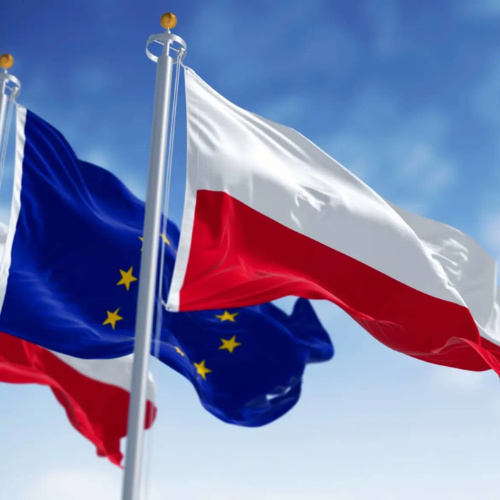On January 1st, Poland began its six-month presidency of the Council of the European Union, a role that rotates among member states. This marks the second time Poland has taken on this significant responsibility since joining the EU. During this presidency, it will lead discussions and decisions on the EU’s most pressing issues, including the ongoing war in Ukraine.
Poland’s leadership comes at a critical time for Europe. The war in Ukraine, which began nearly two years ago, continues to dominate the EU’s agenda. Member states are working to balance their support for Ukraine with broader goals of regional stability and economic resilience. Poland, which shares a border with Ukraine, has been one of Kyiv’s strongest allies and is expected to focus on actions that will further isolate Russia while aiding Ukraine.
The Polish government has already outlined its priorities. These include a tougher stance on Russia, strengthening sanctions, and advancing Ukraine’s path toward EU membership. As the war persists, Ukraine is looking to Poland’s presidency for strong leadership and firm decisions that align with its goals.
Ukraine Calls for Stronger Sanctions and Military Support
Ukraine’s leaders have high expectations during this EU presidency. They are urging Poland to advocate for harsher sanctions against Russia and increased military aid to defend against ongoing aggression. These two areas—sanctions and military support—are seen as vital to Ukraine’s survival and ultimate success.
Sanctions are a powerful tool the EU has used extensively to target Russia’s economy and individuals involved in the war. Since the start of the invasion in February 2022, the EU has imposed multiple rounds of sanctions. These measures have aimed to weaken Russia’s financial system, restrict its access to critical technologies, and limit its ability to fund the war.
EU Takes a Stand: Hungary Faces €1 Billion Fund Loss Amid Legal Violations
However, Ukraine believes there is room for more action. Its officials hope Poland will push for stricter penalties, targeting areas of the Russian economy that have so far been less affected. This includes industries like energy, which remain a significant source of revenue for Moscow.
On the military side, Ukraine continues to need weapons, ammunition, and other supplies to resist Russian forces. The EU, along with its member states, has already provided billions of euros in military aid. Despite these efforts, Ukraine’s needs remain critical as the war grinds on.
Poland, which has consistently supported Ukraine since the war began, is expected to lead the EU in rallying more resources. Ukrainian leaders have expressed their confidence in the country’s ability to secure greater military assistance during its presidency.
Advancing Ukraine’s EU Membership Amid Conflict
Poland’s presidency is also seen as a key opportunity to help Ukraine progress toward EU membership. In February 2022, Ukraine submitted its official application to join the EU, just days after Russia launched its full-scale invasion. By June of that year, Ukraine was granted candidate status, a move that symbolized the EU’s solidarity with the war-torn country.
In December 2023, the European Council decided to open formal negotiations on Ukraine’s accession to the EU. This marked a significant step in a process that typically takes years or even decades to complete. For Ukraine, joining the EU is not just a political goal but also a way to secure its future as a stable and prosperous European nation.
Telegram’s Controversial Ban on Russian State Media Channels in Europe
Ukraine’s leaders are counting on Poland to use its presidency to prioritize this process. While EU membership requires extensive reforms in areas like governance, the rule of law, and economic policies, Poland’s support could help Ukraine achieve milestones more quickly.
Poland’s close relationship with Ukraine and its understanding of the region make it a natural ally in this effort. Ukraine has already expressed its eagerness to work closely with Poland to ensure its accession negotiations remain on track.
Regional Security and the Role of Belarus
Poland’s presidency will also address broader regional security concerns, particularly the role of Belarus. As a close ally of Russia, Belarus has been accused of assisting in the war against Ukraine and using migration to destabilize EU countries.
Poland’s presidency program highlights Belarus as a key issue, mentioning it six times. Five of these references relate to sanctions, while one focuses on countering the use of migration as a weapon. Poland is expected to advocate for tougher measures against Belarus, aligning with its broader efforts to hold Russia accountable.
By addressing both Russia and Belarus, Poland’s presidency aims to strengthen Europe’s security and protect its borders from further destabilization.
As Poland begins its six-month EU presidency, its actions will be closely watched. With Ukraine seeking stronger sanctions, more military aid, and progress toward EU membership, Poland’s leadership could shape Europe’s response to one of its most significant challenges in decades.


